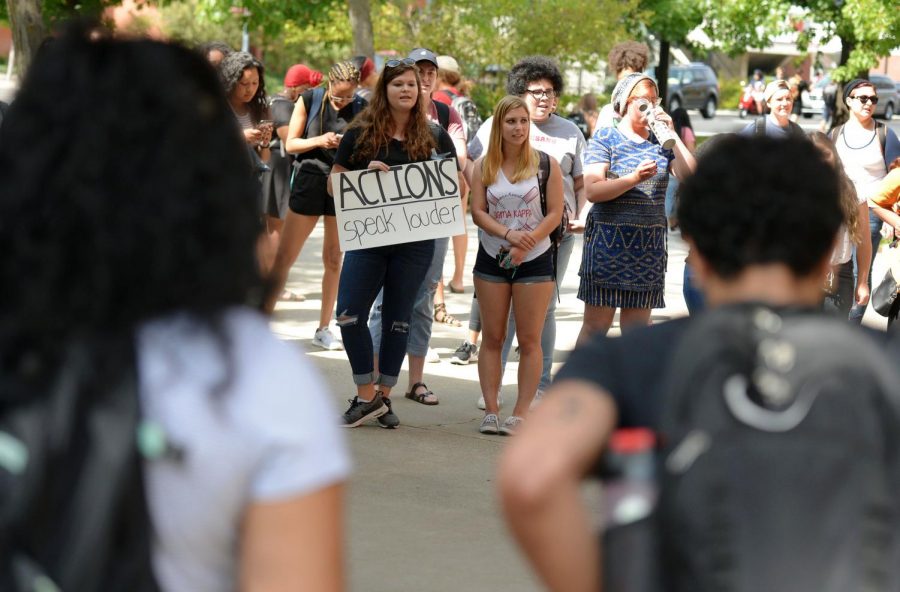Activist of different generations come together
Students and faculty say the fight for social justice spans generations
CODY COTTIER | Daily Evergreen file
Speakers at the Center for Civic Engagement’s event Tuesday said new technologies have mobilized modern activists
January 17, 2018
A panel of students and faculty came together Tuesday and discussed how activism had changed within their lifetimes.
The Center for Civic Engagement hosted the event, titled “A New Era of Social Activism,” for people to share their stories of organizing for social justice.
Brenda Rodriguez, an undergraduate studying Spanish and women’s studies, said she had a responsibility as an immigration rights activist to represent the more than 11 million undocumented people living in the U.S.
“I bring people together and educate my community,” Rodriguez said. “I challenge you to be an organizer as well to find a common ground with others, as without intersectionality, there is no justice.”
She also touched on her activism’s origins.
“Hate and anger pushed me to become an organizer,” Rodriguez said. “All of us have the power to make a change, as cliche as it may sound.”
Jeff Guillory, interim executive director of Diversity Education, remembered his first encounters with racial discrimination.
“As someone who grew up in apartheid,” Guillory said, “I had a difficult time understanding the growth of hatred, and something really heavy started to grow in me.”
Working together would be the only way to solve intercultural conflict, he said, and it was critical for white people to get involved. They should not be left out as they also have the right to join movements.
“I find a lot of people in this area alone who fight for equality,” Guillory said. “I recommend for young people to take opportunities to participate in city council meetings and senate hearings.”
Greg Urquhart, a doctoral student of counseling psychology, called organizing “the backbone of all social justice.”
“You should not be afraid to speak up,” Urquhart said. “The earliest prevention is the most effective.”
Echoing Guillory’s call for young people to make their voices heard, he said he finds motivation in all the social justice opportunities available.
“There are millions of ways to get the words out,” Urquhart said, “and that’s where I get the hope.”
David J. Leonard, a professor in the Department of Critical Culture, Gender and Race Studies, said problems arise when people do not recognize cultural differences and they must take action to solve conflicts.
“The hope comes from work,” Leonard said. “We shouldn’t just wait for it to come.”
The speakers did not agree on the degree to which activism has changed over generations, but Urquhart said their methods are rooted in the same ideals.
“Our tactic as activists is to overwhelm those who suppress us with knowledge and fearlessness,” Urquhart said. “We’re talking about contemporary issues. If you saw a student in class wearing clothes with the Swastika sign, what would you do?”









